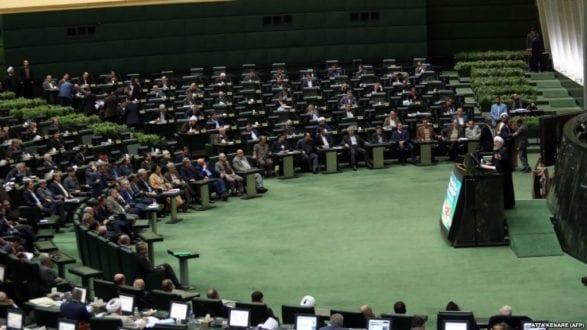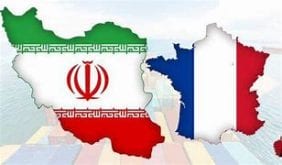Radiofarda – The Iranian Parliament has passed the general outlines of a bill authorizing the government to grant citizenship to children born to Iranian mothers and foreign fathers.
The bill was ratified on May 12 by 188 votes in favor, 20 votes against, and three abstentions out of 226 legislators present in the public session.
If the details of the bill are included in the next session of the parliament and endorsed by the Guardian Council (GC), children born to Iranian mothers can apply for citizenship at age 18 and before then the application should be submitted by the mother.
Based on Article 976 of the Iranian Civil Code, children of “mixed marriages” are currently eligible for citizenship if their father is Iranian.
If the law passed by the parliament and endorsed by GC, tens of thousands of children will gain access to social and healthcare services.
The May 12 session was attended by Deputy President for Legal Affairs Laya Joneydi and Deputy President for Women and Family Affairs Masoumeh Ebtekar.
Several MPs, along with Joneydi, defended the bill, while a number of others such as Tehran’s reformist MP Mostafa Kavakebian and hard-line conservative legislators Farhad Tajjari of Kermanshah and Nader Qazipour of Urmia argued against it.
Civil activists in Iran have been campaigning for more than a decade for an amendment to Article 976 granting citizenship to children born to Iranian mothers.
The parliament rejected a similar bill in 2015.
Referring to renowned mathematician Maryam Mirzakhani, Iranian Vice President Eshaq Jahangiri announced in April that the government had delivered a new bill to the parliament calling for an amendment to Article 976.
Mirzakhani was an Iranian mathematician and a professor of mathematics at Stanford University. In 2014, she received the Fields Medal, the most prestigious award in mathematics. According to The Guardian, she became both the first and to date the only woman and the first Iranian to be honored with the award.
Married to Jan Vondrák, a Czech theoretical computer scientist and applied mathematician who is an associate professor at Stanford University, Mirzakhani died in 2017 of breast cancer at the age of 40. She had repeatedly sought Iranian citizenship for her daughter but never succeeded.
Nevertheless, the MPs against the bill repeated the old argument rejecting the idea.
“While we have so many unemployed educated youth in our country, why should we bring in unidentified youth from abroad?” said hard-line MP Nader Qazipour.
While describing his opposition as “conditional,” another hard-line conservative, senior MP Farhad Tajjari, said, “It is irrational to demand the Islamic Revolutionary Guards Corps (IRGC) and intelligence organizations identify more than 1 million individuals and endorse their qualifications.”
Echoing Tajjari’s concerns, Kavakebian said, “Granting citizenship without planning ahead might pour nearly 50 million immigrants into Iran within the next two decades.”
In response, Joneydi insisted that intelligence matters had nothing to do with granting citizenship since the government was paving the way to grant citizenship to children born to Iranian mothers.
Referring to the large number of children who are born to Iranian mothers in Iran but are not recognized as Iranian, Joneydi asserted, “These youngsters deeply suffer from discrimination and confront numerous hurdles in their education.”
The precise number of children born to Iranian mothers and foreign fathers is not known, but a member of the parliament’s Commission for Cultural Affairs, Tayyebeh Siavoshi, has estimated that 1 million children are living in Iran without identity cards.
Social media users circulated the hashtag #MyMomIsIranian, saying I am also Iranian in support of the amendment of Article 976.
The bill is considered a significant breakthrough in protecting women’s rights, the government’s official news agency, IRNA, reported on May 12.
 Shabtabnews In this dark night, I have lost my way – Arise from a corner, oh you the star of guidance.
Shabtabnews In this dark night, I have lost my way – Arise from a corner, oh you the star of guidance.



